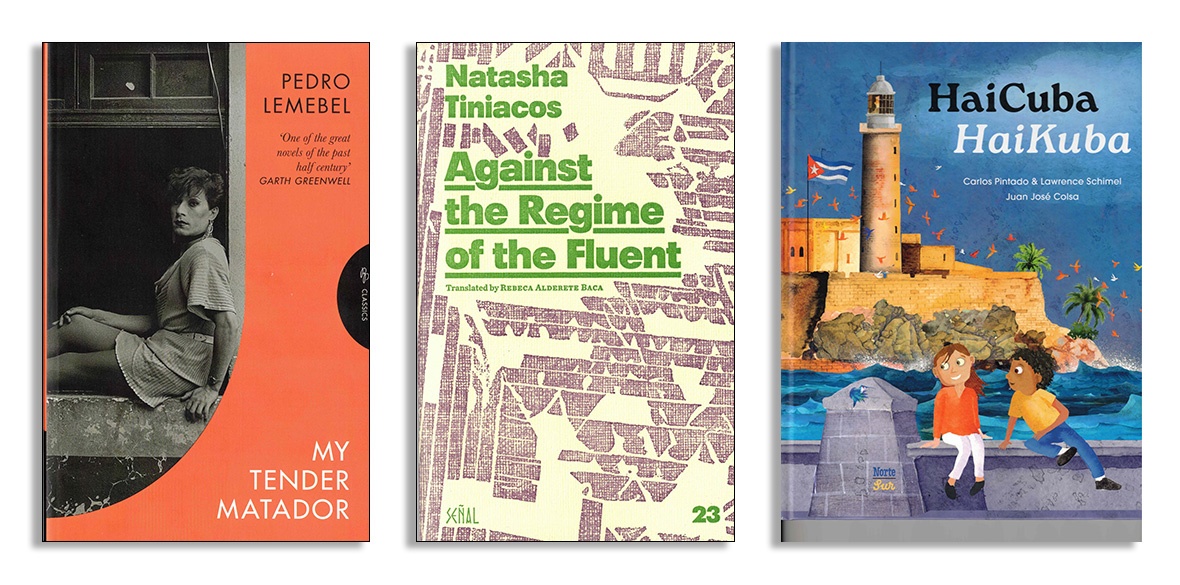This is the last article you can read this month
You can read more article this month
You can read more articles this month
Sorry your limit is up for this month
Reset on:
Please help support the Morning Star by subscribing here
MY TENDER MATADOR (Pushkin Press, £10.99), by Chilean writer, activist, and performance artist Pedro Lemebel, begins in Santiago, Chile, in the spring of 1986. The narrative, skilfully translated by Katherine Silver, unfolds days before the 13th anniversary of Augusto Pinochet’s brutal dictatorship, which commenced following the overthrow of Salvador Allende’s democratically elected socialist government by a coup d’etat supported by the US on September 11 1973.
At the heart of the novel is the Queen of the Corner, an endearing queer man who lives in a scrawny house in a lower-class Santiago neighbourhood and who embroiders tablecloths and napkins to subsist.
He falls in love with a revolutionary hero called Carlos, a university student who mysteriously appears in his life by hiding some boxes in the Queen’s room on the house’s rooftop.
The story, which intersperses bolero songs and radio bulletins about the political situation in Chile and the increasing protests and marches against the dictator, is told from the perspective of the Queen of the Corner and also from the point of view of Pinochet’s wife, the cold-hearted and fashion-obsessed Lucia Hiriart.
This powerful novel explores themes of protest, political dissent, and revolution while also delving into queer desire and kitsch romance under the Pinochet dictatorship. It features endearing characters, including the drag queen friends of the Queen of the Corner: La Rana, Lupe and Fabiola, while painting a picture of Pinochet as a blood-thirsty and homophobic tyrant.
The narrative includes gripping scenes, from an assassination attempt on Pinochet and a birthday party that descends into an alcoholic erotic dream, to a political march in the streets of Santiago that culminates in police brutality and a hasty escape from the capital, leading the protagonist to a beach in Valparaiso.
Lemebel, regarded as one of the most significant queer writers of 20th century Latin America and a pioneer of counter-culture in Chile, authored only one novel during his lifetime, a must-read masterpiece of political consciousness, resistance, and transgression. This is a major queer classic that merits broader recognition in the English-speaking world.
I cannot recommend this book highly enough.
Natasha Tiniacos’ Against The Regime Of The Fluent (Ugly Duckling Presse, £10) is a bilingual pamphlet that examines the limits of fluency and intelligibility amid diasporic experiences. “To speak is to live a double life./ So: I enter a dark house and only the flies clear a path for me,” reads the poem in the overture.
The collection, translated by Rebeca Alderete Baca, features large sections crossed out, pointing to what is meant but not said or what is said but later reorganised or erased. Water, rivers, and liquid flow feature prominently in this slim pamphlet.
I must admit that I didn’t follow the entire trajectory of the poem nor some of its obscure images, but I suppose that is the project’s main point: to prompt the reader to question what it means to go “against the regime of the fluent.”
“What happened/ happened freediving from a falling of will,/ from the contention to the stroke of luck,/ from fluid to grief/ from grief to love/ and the other way,/ like how you go/ from door to door/ and my heart is the bell.”
Originally from Maracaibo but now living in the US, Tiniacos is also interested in translation and the poetics of diaspora. As Baca explains in the Translator’s Note: “Now, there is a witness here, but also agency. The river roars. And we hear it. It rushes to the rapids and that is a force of nature. There is liberty in the declaration. A simple, driving, falling roar. And the opening goes from ‘cuando el rio suena es por fuerza natural’ to ‘the river roars — this is a force of nature’.”
Another interesting addition to Ugly Duckling Presse’s “Senal” series showcasing new poetic voices from Latin America.
HaiCuba/HaiKuba: Haikus about Cuba (Ediciones Norte Sur, £15) by Cuban poet Carlos Pintado, ingeniously translated by Lawrence Schimel and with illustrations by Mexican artist Juan Jose Costa, is a delightful children’s book full of lovable haikus. Among my favourites is Cuba: “Is it an island/ or a tiny ship floating/ upon the waters?” or Havana Neighborhood where “Laundry hung on lines./ Who says that this rain shower/ won’t wash it all clean?”
With colourful illustrations of Cuba and vignettes told from children’s perspectives, this bilingual collection of haikus is a wonderful way to discover Cuba and its beautiful people, history, natural world, and unique stories.
A highly recommended book for children.







